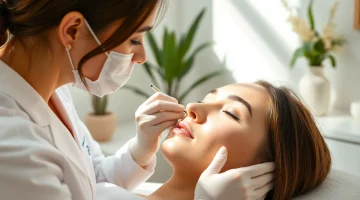
Understanding Peptide Therapy: Benefits, Uses, and Considerations
What is Peptide Therapy?
Peptide Therapy is an innovative medical treatment that harnesses the power of peptides—short chains of amino acids that play crucial roles in various biological processes. These peptides work by signaling cells to perform specific functions, which can include regeneration, repair, and hormonal balance. This therapy is becoming increasingly sought after for its ability to target a range of conditions, from hormonal imbalances and chronic pain to anti-aging benefits and muscle recovery. By utilizing Peptide Therapy, patients can explore a holistic approach to enhancing their health and well-being.
The Science Behind Peptides
Peptides are naturally occurring compounds that consist of amino acids linked by peptide bonds. They are essentially small proteins that serve as signaling molecules to facilitate communication between cells. This communication is vital for numerous bodily functions, including metabolism regulation, immune response, and tissue repair.
In therapy, synthetic peptides are designed to mimic or enhance the action of natural peptides. They can influence a variety of biological processes, promoting healing and improving overall health. The science behind their efficacy lies in their targeted action, as they can interact with specific receptors in the body to produce the desired therapeutic effects.
How Peptide Therapy Works
Peptide Therapy involves the administration of specific peptides tailored to an individual’s health needs. This can be done through various methods, including injections or topical applications, depending on the peptide’s intended effect and the condition being treated.
Once introduced into the body, peptides work by binding to receptors on the target cells, stimulating them to carry out specific actions such as hormone release, inflammation reduction, or cellular repair. The specificity of each peptide allows for a wide range of applications, making it a versatile tool in modern medicine.
Common Peptides Used in Therapy
- GhRP (Growth Hormone Releasing Peptide): Stimulates the release of growth hormone, aiding in muscle growth and recovery.
- BPC-157 (Body Protection Compound): Known for its regenerative properties, particularly in healing muscles, tendons, and ligaments.
- Thymosin Beta-4: Plays a significant role in wound healing and reducing inflammation.
- Melanotan II: Used for tanning and appetite suppression.
- IGF-1 (Insulin-like Growth Factor-1): Essential for muscle growth, repair, and metabolic health.
Benefits of Peptide Therapy
Health Improvements Through Peptide Therapy
Peptide Therapy boasts a range of health benefits that can significantly improve an individual’s quality of life. These can include:
- Enhanced Cellular Repair: Peptides like BPC-157 can accelerate healing processes, making them highly beneficial for athletes and individuals recovering from injuries.
- Improved Muscle Growth and Recovery: Peptides that promote human growth hormone levels can help individuals gain muscle more effectively and recover from strenuous activities.
- Weight Management: Certain peptides can assist in appetite regulation and fat metabolism, aiding in weight loss efforts.
- Immune Support: Peptides can enhance immune function, providing better resistance against infections and diseases.
- Anti-Inflammatory Properties: Many therapeutic peptides have been found to mitigate inflammation, helping manage chronic conditions.
Benefits for Aging and Longevity
Aging can lead to a decline in various bodily functions, but Peptide Therapy offers promising solutions. Specific peptides can help rejuvenate skin health, enhance cognitive function, and maintain hormonal balance. For instance:
- Skin Health: Peptides like collagen-stimulating components can significantly improve skin elasticity and reduce wrinkles.
- Cognitive Function: Certain peptides have neuroprotective properties that may enhance memory and cognitive abilities.
- Hormonal Balance: Peptide Therapy can facilitate hormone replacement and balance previously declining hormone levels hastening the aging process.
Peptide Therapy for Muscle Growth and Recovery
For athletes and fitness enthusiasts, Peptide Therapy presents a viable option for enhancing muscle growth and recovery times. Peptides such as GhRP and IGF-1 are effective in stimulating muscle hypertrophy and promoting quicker recovery from workouts, fundamentally transforming the athlete’s training experience.
By integrating Peptide Therapy into a fitness regimen, individuals might experience:
- Increased strength and muscle mass.
- Faster recovery rates, minimizing downtime from intense training.
- Improved endurance and performance capabilities.
Potential Side Effects of Peptide Therapy
Understanding Risks and Reactions
Like any medical treatment, Peptide Therapy is not without its potential side effects. While many individuals tolerate peptides well, it is crucial to be aware of possible reactions, including:
- Injection site reactions such as pain or swelling.
- Allergic reactions to specific peptides.
- Hormonal imbalances leading to unwanted physical changes.
- Potential interference with natural hormone production.
It’s essential for individuals to consult with healthcare professionals to understand these risks and make informed decisions regarding their treatment.
Alerting Your Healthcare Provider
Patients considering Peptide Therapy should communicate openly with their healthcare providers. It is vital to discuss personal health histories, current medications, and any pre-existing conditions to ensure the therapy aligns safely with their health goals. A thorough medical assessment facilitates a tailored approach to Peptide Therapy, maximizing benefits while minimizing risks.
Strategies for Mitigating Risks
To mitigate potential side effects of Peptide Therapy, consider the following strategies:
- Start with lower doses: Beginning with smaller doses can help gauge tolerance before increasing gradually.
- Regular monitoring: Regular appointments with healthcare professionals can aid in monitoring responses and adjusting protocols as needed.
- Educate yourself: Understanding the specific peptides being used, their expected effects, and possible side effects can empower patients to make informed decisions.
How to Get Started with Peptide Therapy
Consultation and Assessment Process
The first step in embarking on Peptide Therapy is to schedule a consultation with a qualified healthcare provider experienced in peptide use. This initial meeting should involve a comprehensive health assessment, including:
- Detailed medical history
- Current health status and symptoms
- Goals for therapy and overall health improvement
Based on the assessment, the provider can recommend a personalized peptide protocol tailored to the individual’s needs.
Setting Treatment Goals
Establishing clear and attainable goals is crucial for maximizing the effectiveness of Peptide Therapy. Whether the objectives are to build muscle, reduce inflammation, enhance skin health, or other targets, outlining these goals will help guide the treatment plan and evaluate progress over time. Discuss these goals openly with your healthcare provider to ensure a shared vision of success.
Monitoring Progress and Adjustments
Regular follow-ups are vital in Peptide Therapy, allowing for the monitoring of progress and making necessary adjustments to the treatment protocol. During these check-ins, patients will typically discuss:
- Improvements in symptoms and overall health.
- Any side effects or concerns that may have arisen.
- Adjustments to dosage or types of peptides being used based on individual responses.
This ongoing dialogue between patient and provider helps optimize outcomes, ensuring that each individual achieves their desired health improvements effectively.
Future of Peptide Therapy
Research and Advancements in Peptide Use
The field of Peptide Therapy continues to evolve as research uncovers new applications and benefits. Advancements in peptide synthesis and modulation are heightening the effectiveness of existing therapies and expanding the possibilities for new treatments. As scientific understanding deepens, we can expect the emergence of novel peptides that target conditions previously untreatable or manage diseases in more effective ways.
Potential for New Therapeutic Applications
As the landscape of peptide research expands, the potential for therapeutic applications seems nearly limitless. From enhancing cognitive function to developing treatments for autoimmune diseases, the versatility and specificity of peptides pave the way for breakthroughs in multiple areas of healthcare. As researchers explore the genetic basis of diseases, custom peptides tailored to address specific genetic conditions could become a reality, revolutionizing personalized medicine.
Community and Patient Perspectives on Peptide Therapy
The growth of Peptide Therapy has sparked interest not just in the medical community but among patients as well. Individuals who’ve undergone Peptide Therapy are increasingly sharing their experiences, both positive and negative, providing invaluable feedback to healthcare providers and researchers. This shared knowledge base fosters community support and aids in shaping future treatment protocols that resonate strongly with what patients seek: efficacy and safety.



